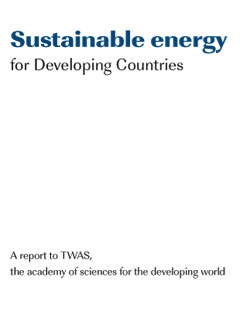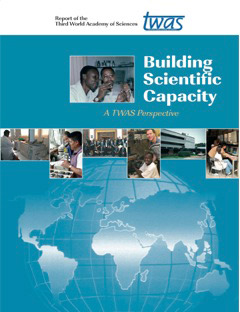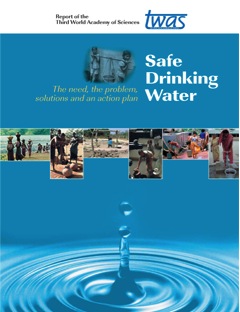Sustainable Energy for Developing Countries is the Academy's third research report in a series designed to examine critical science-related issues of importance both to the North and South. Developing and emerging economies face a two-fold energy challenge in the 21st century: Meeting the needs of billions of people who still lack access to basic, modern energy services while simultaneously participating in a global transition to clean, low-carbon energy systems. Both aspects of this challenge demand urgent attention. Developing countries themselves must take the lead in charting a new energy course. But developed countries must stand ready to provide support, recognizing that they have a vital stake in the outcome. Authors Dilip Ahuja and Marika Tatsutani provide a comprehensive assessment of how developing countries can meet both of these energy challenges within a broad strategy for sustainable economic growth.
TWAS Research Reports
2008 - Sustainable Energy for Developing Countries

2004 - Building Scientific Capacity: A TWAS Perspective.

This report offers an additional viewpoint on an issue that has recently received a great deal of attention: scientific capacity building, particularly in the South. For example, the RAND Corporation, the InterAcademy Council and the United Nations, through its Millennium Development Goals (MDGs), have all examined in detail strategies for the promotion of scientific capacity with special attention to the challenges faced by the developing world. The purpose of this report is to complement the wide-ranging discussion now taking place and to provide a distinct perspective on this issue as seen through the eyes of scientists and scientific institutions in the South.
2002 - Safe Drinking Water: The need, the problem, solutions and an action plan

The first report of the series was devoted to Safe Drinking Water: The need, the problem, solutions and an action plan.
